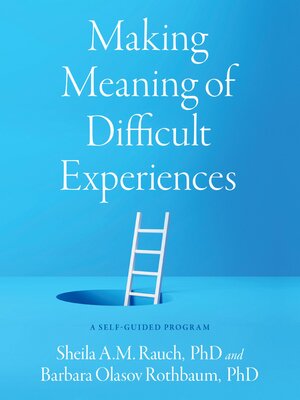
Sign up to save your library
With an OverDrive account, you can save your favorite libraries for at-a-glance information about availability. Find out more about OverDrive accounts.
Find this title in Libby, the library reading app by OverDrive.



Search for a digital library with this title
Title found at these libraries:
| Library Name | Distance |
|---|---|
| Loading... |
Feel it, stay with it, share it, and let it go. Take your life back from stress and trauma using self-help versions of proven treatments. Up to 90% of adults in the US will experience one or more traumatic events in their lifetimes, including interpersonal violence, traffic collisions, and sexual assault. Traumatic events and other difficult experiences (such as miscarriage, job loss, and divorce) can have a long-lasting impact on mental health and well-being. While most who suffer a trauma naturally recover over time, for others difficulties continue, and may lead to full-blown depression, posttraumatic stress disorder (PTSD), substance use, anxiety disorders, and other problems that interfere with healthy daily functioning. Making Meaning of Difficult Experiences is a self-guided mental health resource for people who have had potentially traumatic experiences and who wish to work through them independently, outside of a formal therapeutic setting. Based on psychological treatments with strong scientific support, this book introduces readers to several useful tools that will help them to emotionally process difficult experiences, with the goal of moving on from the event and building future resilience. Many years of research (much of which has been conducted by the authors of this volume) have shown that people who try to avoid memories and reminders of difficult experiences are more likely to develop PTSD, depression, and other problems. Conversely, those who work to process the memory gradually regain a general sense of wellbeing, experiencing fewer mental health issues over time. This program is unique in that it is intended to be wholly self-directed. Readers can learn about and then immediately practice the strategies described, moving through and then past difficult experiences—whether they happened last week or years ago. The program takes the reader step-by-step through four skill sets to facilitate emotional processing of difficult experiences: Memory Exposure and Processing, Behavioral Activation, Social Connection, and Self-Care. Each set begins with a short description, followed by a self-assessment. Readers use this self-evaluation to determine what is working or not working for them, enabling them to focus more on certain skills, or to complete the full program based on their needs.







